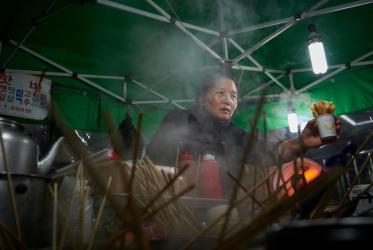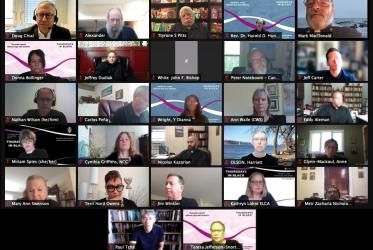Displaying 21 - 40 of 87
27 October 2021
New student body at Bossey Ecumenical Institute “a source of joy”
14 September 2020
New WCC “Eco Ambassadors” pledge to protect our ecology
06 January 2020
Eco-School promotes blue communities, green churches
19 November 2019
WCC Eco-School begins in Thailand
07 November 2019
WCC well-represented in Religions for Peace leadership
07 October 2019
Dr Saïd Ailabouni: God is on the side of rejected, oppressed, occupied
12 September 2019
“Economy of life” lifted up at special school in Indonesia
22 August 2019











